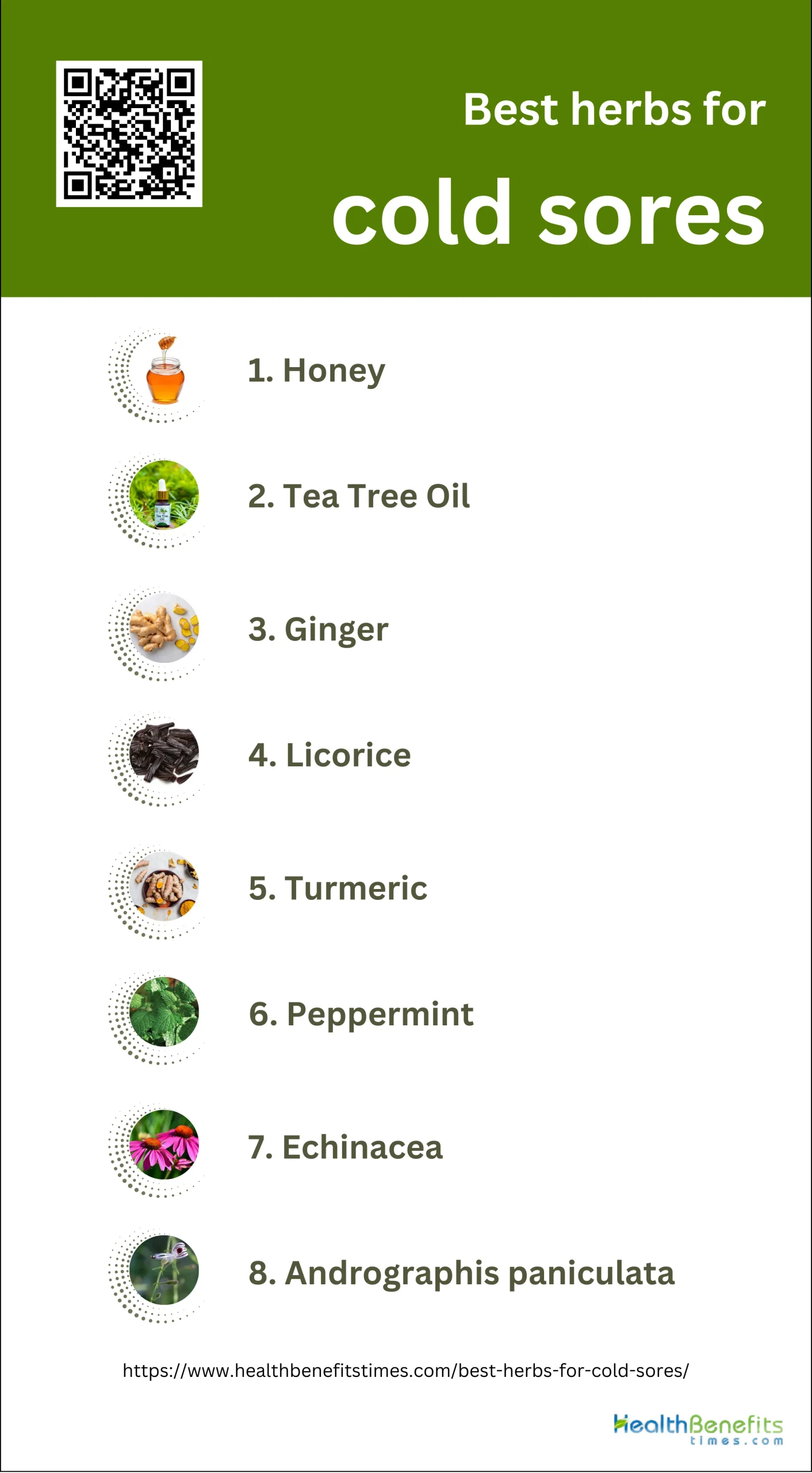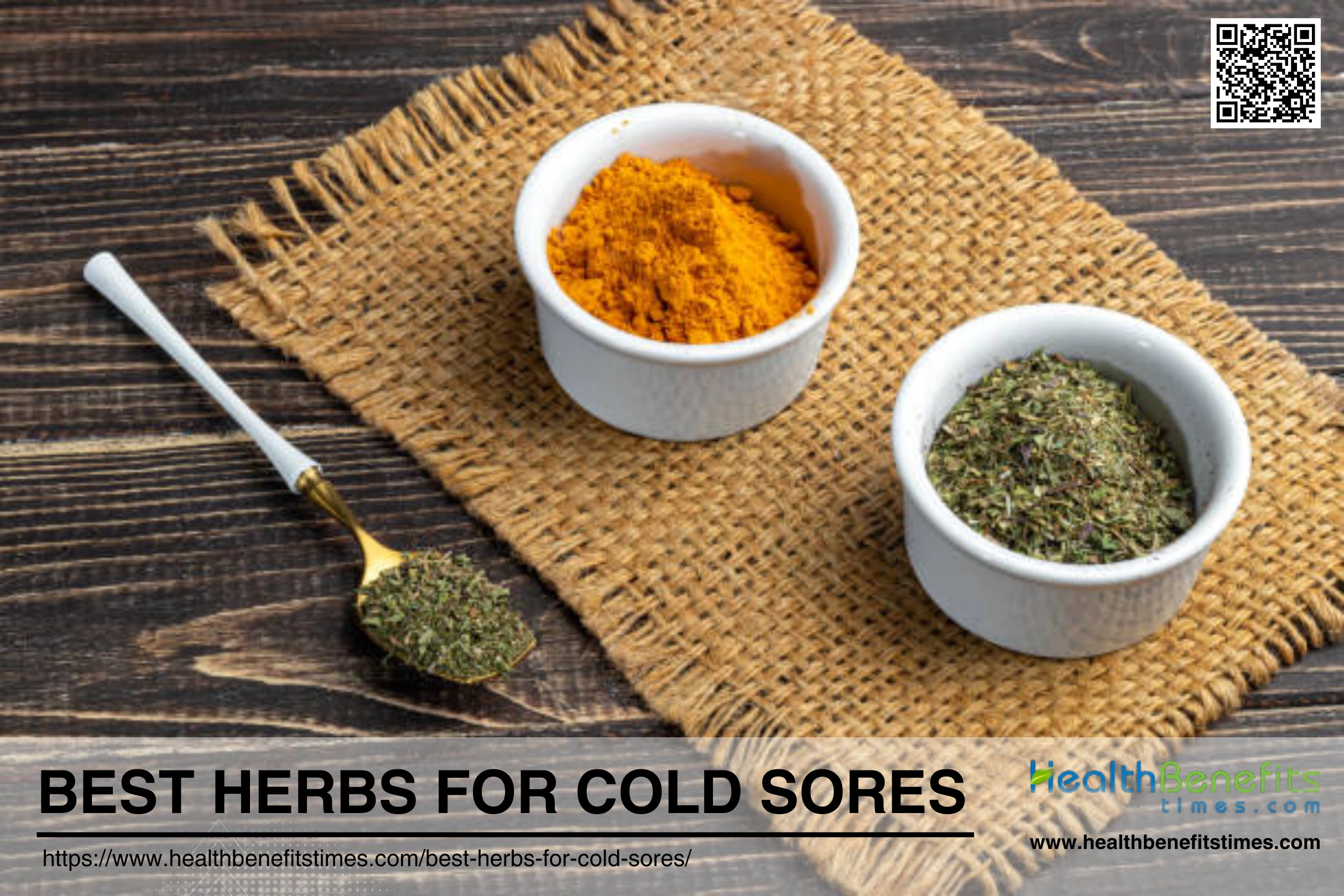 Cold sores, also known as oral herpes or fever blisters, are small, fluid-filled blisters that typically appear on or around the lips. They are caused by the herpes simplex virus type 1 (HSV-1) and are highly contagious, affecting a significant portion of the population. These sores are not only painful but can also lead to cosmetic disfigurement and psychosocial distress due to their unsightly appearance. While there is no cure for cold sores, various interventions, particularly long-term use of oral antiviral agents, have been shown to reduce the recurrence of outbreaks. Cold sores can reoccur multiple times, often triggered by factors such as stress, which can weaken the body’s defenses.
Cold sores, also known as oral herpes or fever blisters, are small, fluid-filled blisters that typically appear on or around the lips. They are caused by the herpes simplex virus type 1 (HSV-1) and are highly contagious, affecting a significant portion of the population. These sores are not only painful but can also lead to cosmetic disfigurement and psychosocial distress due to their unsightly appearance. While there is no cure for cold sores, various interventions, particularly long-term use of oral antiviral agents, have been shown to reduce the recurrence of outbreaks. Cold sores can reoccur multiple times, often triggered by factors such as stress, which can weaken the body’s defenses.
Types of Cold sores
While many people are familiar with the classic cold sore on the lip, there are actually several different types of cold sores that can affect various parts of the body. In this article, we’ll explore the different types of cold sores, their symptoms, and how they can be managed to help you better understand and cope with this common condition.
- Primary Infection Cold Sores
- Recurrent Cold Sores
- Herpes Labialis
- Fever Blisters
Common Causes of Cold sores
Understanding what causes these flare-ups is key to managing and preventing them. In this article, we’ll delve into the most common causes of cold sores, helping you identify potential triggers and take steps to minimize the risk of an outbreak.
- Herpes Simplex Virus (HSV-1)
- Stress
- Fatigue
- Illness (e.g., cold, fever, flu)
- Hormonal Changes (e.g., menstruation)
- Exposure to Sunlight
- Wind or Cold Weather
- Injury to the Skin
- Weakened Immune System
- Certain Foods
Best herbs for cold sores
Using herbs to care for cold sores instead of conventional medication offers several advantages. Herbal treatments, such as those derived from Melaleuca alternifolia (tea tree oil), have demonstrated broad-spectrum antimicrobial activity, including efficacy against the herpes simplex virus (HSV), which causes cold sores. Additionally, medical-grade honey (MGH) has shown promising results in clinical studies, outperforming conventional treatments by significantly reducing healing time and alleviating pain and itching associated with cold sores. These natural remedies not only provide effective antiviral and wound healing properties but also tend to be more accessible and cost-effective compared to systemic antiviral medications like aciclovir, valaciclovir, or famciclovir, which can be expensive and yield inconsistent results when used topically. Furthermore, the use of herbs aligns with traditional medicine practices, such as Ayurveda and Jamu, which have long utilized herbal therapies for managing various ailments, including viral infections. Thus, the integration of herbal treatments offers a holistic, effective, and economical alternative for managing cold sores.
1. Honey
Honey is a natural remedy that has shown potential benefits for treating cold sores, thanks to its antiviral and healing properties. Cold sores, caused by the herpes simplex virus, can be painful and unsightly, but honey’s natural composition can help alleviate these symptoms. It contains antiviral compounds that may inhibit the replication of the virus, thus reducing the duration and severity of outbreaks. Additionally, honey’s anti-inflammatory properties can soothe irritation and promote faster healing of the affected skin. Its ability to retain moisture also helps to prevent the cracking and bleeding often associated with cold sores. Applying a small amount of honey directly to the sore several times a day can provide relief and support the healing process.
What Research Says?
- Based on research carried out by Pharmaceuticals (Basel) and Advances in Integrative Medicine, Medical-grade honey (MGH) significantly reduces the healing time of cold sores compared to conventional treatments, with patients experiencing faster healing and reduced pain and itching.
- As per studies undertaken by BMJ Journals, Kanuka honey has shown similar healing times to acyclovir, with some studies suggesting a slight advantage in favor of honey.
- According to studies performed by Journal of Scientific Dentistry, Honey’s antiviral properties, attributed to components like nitric oxide, help in reducing the signs and symptoms of herpetic lesions.
How to Use
Begin by ensuring the area around the cold sore is clean and dry. Using a clean cotton swab or your fingertip, apply a thin layer of raw, unprocessed honey directly onto the cold sore. This should be done several times a day, ideally every few hours, to maintain a protective barrier and allow the honey’s antiviral and healing properties to work effectively. It’s crucial to use raw honey, as it retains more of the natural enzymes and beneficial compounds that can aid in reducing the duration and severity of the outbreak.
Potential Side Effects of Honey
While honey is generally safe for most people, it can have potential side effects. One of the primary concerns is its ability to cause allergic reactions in individuals sensitive to pollen, as honey can contain pollen particles. Symptoms of an allergic reaction may include itching, swelling, and even anaphylaxis in severe cases. Additionally, honey can contain natural toxins, especially when unprocessed, which may lead to symptoms like nausea, vomiting, and in severe cases, low blood pressure or shock.
Who Should Avoid Honey
Certain groups of people should avoid consuming honey due to potential health risks. Infants under one year old should not consume honey because it can contain Clostridium botulinum spores, which can cause infant botulism, a rare but serious illness. People with diabetes or those who are pre-diabetic should be cautious with honey intake, as it can raise blood sugar levels. Additionally, individuals who are overweight or obese might want to limit honey consumption to avoid hindering weight loss efforts.
Interaction with Medications
Honey’s interaction with medications is not extensively studied, but some research suggests it may affect certain drug-metabolizing enzymes, such as CYP3A4, which is involved in the metabolism of over half of all drugs. This interaction could potentially alter the effectiveness of medications metabolized by these enzymes. However, studies have shown mixed results, and the extent of this interaction may vary depending on the type and amount of honey consumed.
2. Tea Tree Oil
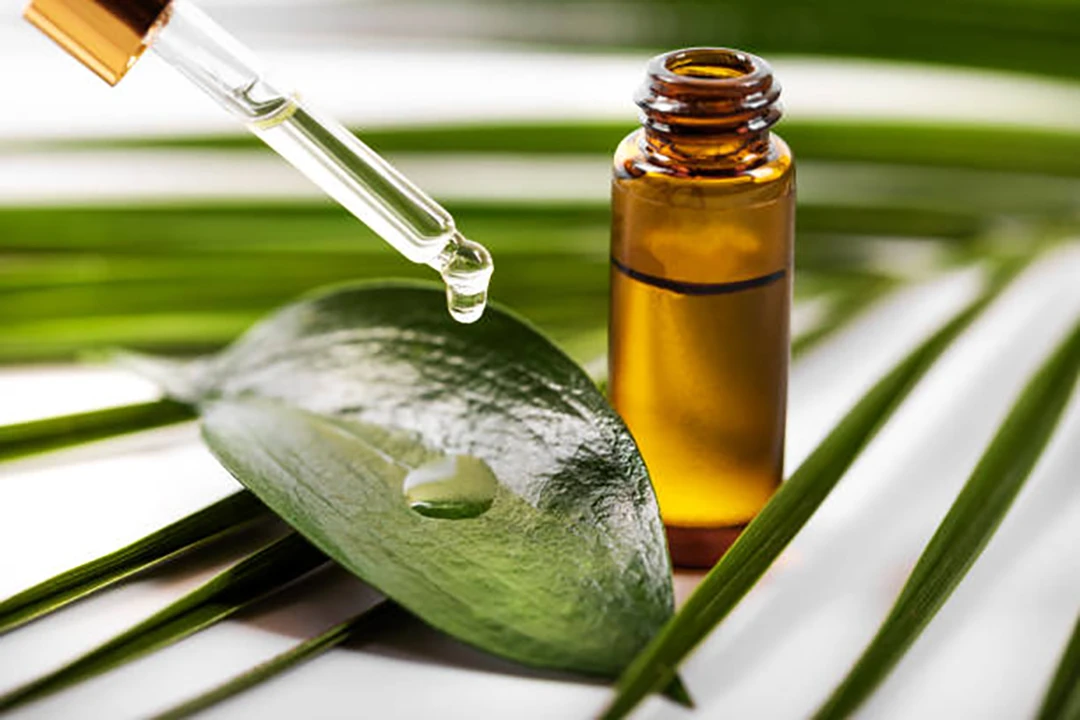
Tea tree oil is a natural essential oil known for its potent antiviral and anti-inflammatory properties, making it a beneficial remedy for cold sores. Derived from the leaves of the Melaleuca alternifolia plant, tea tree oil can help reduce the duration and severity of cold sore outbreaks caused by the herpes simplex virus. Its antiviral properties may inhibit the virus’s ability to replicate, while its anti-inflammatory effects can alleviate pain and swelling associated with cold sores. Additionally, tea tree oil’s antiseptic qualities help prevent secondary bacterial infections, promoting faster healing. To use tea tree oil for cold sores, it should be diluted with a carrier oil, such as coconut or olive oil, and applied directly to the affected area with a cotton swab several times a day.
What Research Says?
- According to investigations conducted by Journal of Antimicrobial Chemotherapy, Tea tree oil has demonstrated broad-spectrum antimicrobial activity, including effectiveness against the herpes simplex virus (HSV), which is responsible for cold sores.
- As demonstrated by research from Contemporary Clinical Trials, In a randomized, placebo-controlled trial, tea tree oil was tested for its efficacy in treating recurrent herpes labialis. The study used deception to maintain blinding and found that the ethical use of deception can be effective in clinical trials. However, the abstract does not provide specific results on the efficacy of tea tree oil in reducing the duration or severity of cold sores.
How to Use
To use tea tree oil for cold sores, begin by diluting it with a carrier oil, such as coconut or olive oil, to prevent skin irritation, as tea tree oil is highly concentrated. A typical dilution ratio is one drop of tea tree oil to a teaspoon of carrier oil. Once diluted, use a clean cotton swab to apply the mixture directly to the cold sore. This should be done two to three times a day, ensuring the area is clean and dry before each application.
Potential Side Effects of Tea Tree Oil
Tea tree oil, while beneficial for various skin conditions, can cause several side effects, particularly when used improperly. One of the most common issues is skin irritation, which can manifest as redness, itching, or a rash, especially if the oil is not diluted adequately before application. Allergic contact dermatitis is another potential reaction, where the skin becomes inflamed due to an allergic response to the oil. Tea tree oil is also toxic if ingested, leading to severe symptoms such as confusion, loss of coordination, and even coma.
Who Should Avoid Tea Tree Oil
Certain individuals should avoid using tea tree oil due to its potential to exacerbate existing conditions. People with eczema should steer clear of tea tree oil, as it can worsen their symptoms. Those with known allergies to plants or essential oils may also experience adverse reactions, such as skin irritation or allergic dermatitis, and should avoid using it. Pregnant or breastfeeding women are advised to consult with a healthcare provider before using tea tree oil, as there is limited information on its safety in these conditions.
Interaction with Medications
While tea tree oil is often used alongside other treatments for bacterial or fungal skin conditions, there is no substantial evidence to suggest it interacts negatively with drugs. However, it is always prudent to consult with a healthcare professional before combining tea tree oil with other treatments, especially if you are taking prescription medications or have underlying health conditions.
3. Ginger
Ginger is a natural remedy that may offer benefits for managing cold sores due to its anti-inflammatory and antiviral properties. The active compounds in ginger, such as gingerol and shogaol, have been shown to exhibit antiviral activity, which can help inhibit the replication of the herpes simplex virus responsible for cold sores. Additionally, ginger’s anti-inflammatory effects can reduce the swelling and discomfort associated with these sores, promoting faster healing. Applying ginger topically in the form of ginger oil or a paste made from fresh ginger can soothe the affected area and provide relief from pain and irritation. Furthermore, consuming ginger tea or supplements may boost the immune system, potentially reducing the frequency and severity of cold sore outbreaks. However, it is important to conduct a patch test before applying ginger topically to ensure there is no adverse skin reaction.
What Research Says?
- According to the research carried out by International Journal of Science and Research Archive and Journal of Ethnopharmacology, Ginger has demonstrated significant anti-inflammatory effects, which can help reduce pain and inflammation associated with various conditions, including sore throats and potentially cold sores.
- As shown by research done by Phytotherapy Research, The pain-relieving effects of ginger are attributed to its ability to inhibit prostaglandins and other inflammatory mediators.
- According to the findings from research conducted by Food Bioscience, Ginger contains bioactive compounds such as flavonoids, phenolic acids, and essential oils, which possess antimicrobial properties. These compounds can help combat infections that may exacerbate cold sores.
How to Use
To use ginger for cold sores, it can be applied topically or consumed orally to harness its beneficial properties. For topical application, create a ginger paste by grating fresh ginger and mixing it with a small amount of water to form a thick consistency. Apply this paste directly to the cold sore using a clean cotton swab, leaving it on for about 10 to 15 minutes before rinsing off. This can be done several times a day to help reduce inflammation and promote healing. Alternatively, consuming ginger tea can provide systemic benefits. To make ginger tea, steep freshly sliced ginger in hot water for about 10 minutes, then strain and drink.
Potential Side Effects of Ginger
Ginger is generally considered safe for most people when consumed in moderation, but it can cause some mild side effects. Common side effects include heartburn, diarrhea, burping, and general stomach discomfort, particularly when consumed in large quantities. High doses, typically above 5 grams per day, increase the risk of these gastrointestinal issues.
Who Should Avoid Ginger
Certain individuals should exercise caution or avoid ginger altogether. Pregnant women, especially in the later stages of pregnancy, should consult a healthcare provider before using ginger, as it may affect fetal hormones and increase bleeding risk. People with bleeding disorders or those taking blood-thinning medications, such as warfarin or aspirin, should avoid ginger due to its potential to increase bleeding risk. Additionally, individuals with gallstones or gallbladder issues should be cautious, as ginger can increase bile production, potentially exacerbating these conditions.
Interaction with Medications
Ginger can interact with a variety of medications, which may lead to significant health concerns. It is known to interact with over 60 medications, including anticoagulants like warfarin, aspirin, and other blood thinners, potentially increasing the risk of bleeding. Ginger can also affect blood sugar levels, so individuals taking diabetes medications may need to monitor their blood sugar closely to avoid hypoglycemia.
4. Licorice
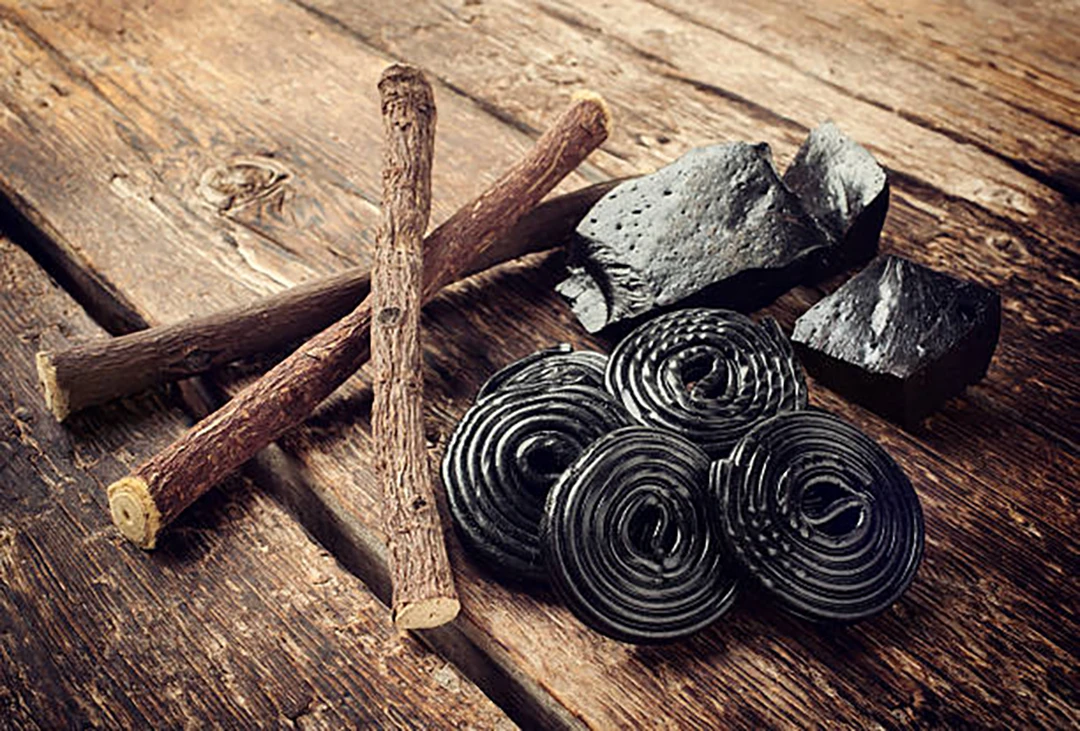
Licorice, a well-known herb in traditional medicine, has shown promising benefits in the treatment of cold sores. The active compound in licorice, glycyrrhizic acid, possesses antiviral and anti-inflammatory properties that can help reduce the severity and duration of cold sore outbreaks. By inhibiting the replication of the herpes simplex virus, which causes cold sores, licorice can effectively limit the spread and intensity of the sores. Additionally, its soothing properties can alleviate pain and discomfort associated with these lesions. Incorporating licorice in topical treatments or as a supplement may offer a natural remedy for those seeking relief from cold sores, although it is always advisable to consult with a healthcare provider before starting any new treatment regimen.
What Research Says?
- As evidenced by research led by Biomedicine & Pharmacotherapy, Licorice extract significantly enhances wound healing by increasing angiogenesis and collagen deposition, reducing oxidative stress, and boosting antioxidant biomarkers such as superoxide dismutase (SOD) and glutathione peroxidase (GPx).
- According to studies led by Pharmaceutical Biology , Licorice contains compounds that exhibit strong anti-inflammatory properties by decreasing levels of TNF, MMPs, PGE2, and free radicals, which are key mediators of inflammation.
- Based on research carried out by Ambulatory Anesthesiology, Licorice gargle has been shown to significantly reduce the incidence and severity of postoperative sore throat (POST) when used preoperatively, indicating its potential in alleviating throat inflammation and irritation.
- As per studies undertaken by Journal of Clinical Anesthesia, Meta-analysis of randomized controlled trials supports the effectiveness of topical licorice in reducing both the incidence and severity of POST, with no significant adverse events reported.
How to consume
To effectively use licorice for cold sores, you can incorporate it both topically and orally, ensuring a comprehensive approach to treatment. For topical application, licorice root extract or gel can be directly applied to the affected area. This method allows the antiviral properties of glycyrrhizic acid to act directly on the cold sore, potentially reducing its duration and discomfort. Alternatively, licorice can be consumed as a tea or in supplement form to support your immune system from within. When preparing licorice tea, steep dried licorice root in hot water for several minutes and enjoy it once cooled.
Potential Side Effects of Licorice
Licorice, while beneficial in various traditional remedies, can cause several side effects, particularly when consumed in large quantities or over extended periods. Common side effects include headaches, lethargy, and fluid retention, which can lead to swelling and rapid weight gain. More severe effects include high blood pressure, low potassium levels (hypokalemia), and even heart-related issues such as congestive heart failure and arrhythmias. In rare cases, excessive licorice consumption can lead to muscle weakness, paralysis, and brain damage.
Who Should Avoid Licorice
People with heart conditions, high blood pressure, or kidney disease are particularly vulnerable to the adverse effects of licorice, as it can exacerbate these conditions by causing fluid retention and increased blood pressure. Those with hormone-sensitive conditions, such as breast, ovarian, or uterine cancer, should also avoid licorice, as it may mimic estrogen in the body. Additionally, individuals with low potassium levels, liver disease, or diabetes should steer clear of licorice. Pregnant and breastfeeding women are advised against using licorice due to potential risks of miscarriage and early delivery.
Interaction with Medications
Licorice can interact with a wide range of medications, potentially altering their effects and leading to adverse outcomes. It is known to interact with drugs that affect potassium levels, such as diuretics and ACE inhibitors, potentially worsening side effects or reducing efficacy. Licorice may also enhance the effects of corticosteroids and interfere with the metabolism of drugs pr.
5. Turmeric
Turmeric, a spice renowned for its anti-inflammatory and antioxidant properties, offers potential benefits for managing cold sores. The active compound in turmeric, curcumin, has been shown to exhibit antiviral effects that can help inhibit the replication of the herpes simplex virus responsible for cold sores. By reducing inflammation and oxidative stress in the affected area, turmeric can alleviate pain and promote faster healing of the sores. Incorporating turmeric into your diet, such as adding it to meals or consuming it as a tea, can support your body’s natural defenses against viral infections. Additionally, applying a paste made from turmeric powder and water directly to the cold sore may provide topical relief and aid in reducing the severity of outbreaks.
What Research Says?
- According to studies performed by Clinical and Experimental Dermatology, Turmeric, particularly its active component curcumin, has been documented to possess significant anti-inflammatory and antimicrobial properties, which are beneficial for treating various ailments, including respiratory issues and sore throats.
- According to investigations conducted by Journal of Drug Delivery and Therapeutics, Combining turmeric with other herbs like Neem, Tulsi, and Ginger in polyherbal formulations has been shown to reduce healing time for sore throats and boost immunity, suggesting a synergistic effect that could be beneficial for cold sores as well.
How to Consume
To leverage turmeric’s benefits for cold sores, you can incorporate it both internally and externally. For internal use, adding turmeric to your diet is a simple and effective approach. You can sprinkle turmeric powder into soups, stews, or smoothies, or mix it with warm milk or tea to create a soothing drink known as “golden milk.” For external application, create a paste by mixing turmeric powder with a small amount of water or coconut oil, then apply it directly to the cold sore. This topical method allows curcumin, the active compound in turmeric, to act directly on the affected area, potentially reducing inflammation and speeding up the healing process.
Potential Side Effects of Turmeric
Common side effects include gastrointestinal issues such as upset stomach, acid reflux, diarrhea, and nausea. High doses of turmeric can also lead to dizziness and headaches. Additionally, turmeric contains oxalates, which can increase the risk of kidney stone formation in susceptible individuals.
Who Should Avoid Turmeric
People with bleeding disorders should be cautious, as turmeric can act as a blood thinner and increase the risk of bleeding. Those with gallbladder problems, such as gallstones or bile duct obstruction, should also avoid turmeric, as it can exacerbate these conditions. Individuals with gastroesophageal reflux disease (GERD) may experience worsened symptoms when consuming turmeric. Pregnant and breastfeeding women are advised to avoid turmeric supplements, as they may stimulate uterine contractions or cause complications.
Interaction with Medications
Turmeric can interact with several medications, potentially altering their effects. It is known to interact with blood-thinning medications, such as warfarin, aspirin, and clopidogrel, potentially increasing the risk of bleeding. Turmeric may also enhance the effects of diabetes medications, leading to dangerously low blood sugar levels. Furthermore, it can interfere with antacids and medications that reduce stomach acid, potentially causing increased stomach acid production and gastrointestinal discomfort.
6. Peppermint
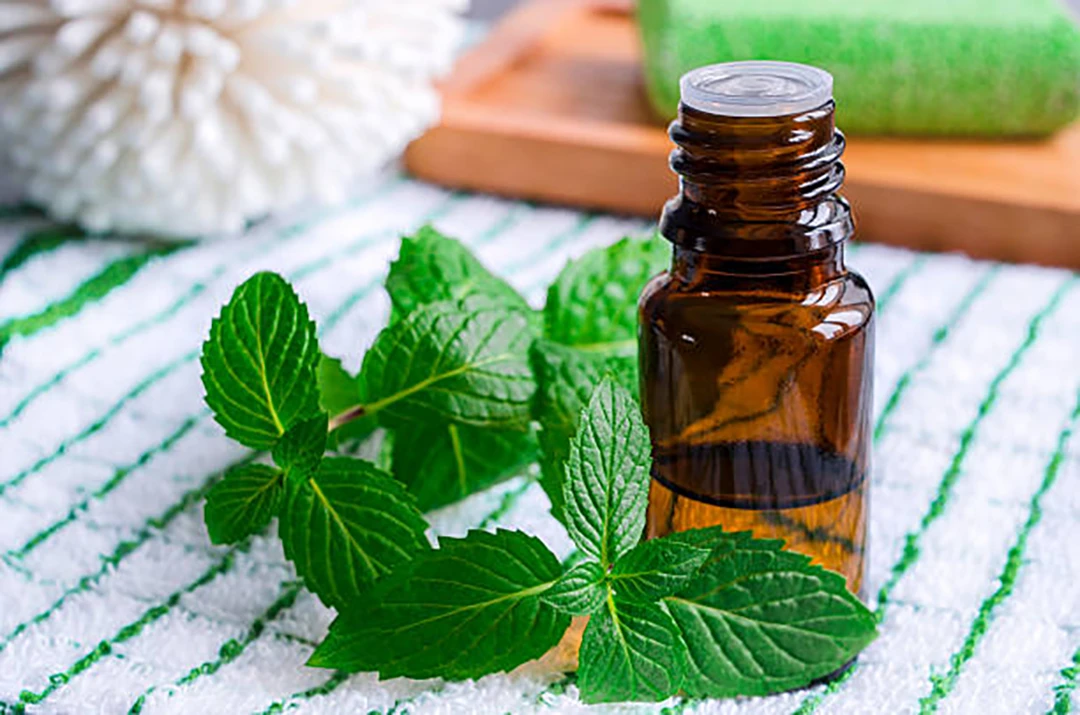
Peppermint, well-known for its refreshing scent and flavor, offers potential benefits in managing cold sores due to its antiviral and soothing properties. The essential oil derived from peppermint contains menthol, which has been shown to possess antiviral activity against the herpes simplex virus, the causative agent of cold sores. Applying diluted peppermint oil directly to the cold sore can help reduce the virus’s activity, potentially shortening the duration of the outbreak. Additionally, the cooling sensation provided by menthol can alleviate the pain and discomfort associated with cold sores. Incorporating peppermint into your routine, whether through topical application or by consuming peppermint tea, can provide a natural remedy for cold sore relief.
What Research Says?
- As demonstrated by research from Phytotherapy Research, Peppermint has been noted for its antiviral properties, which are crucial for treating viral infections like cold sores. The bioactive compounds in peppermint, such as essential oils, flavonoids, and phenolics, contribute to its antiviral effects.
- As shown by research done by Drug in Context, historically, peppermint has been used to treat various conditions, including cold symptoms and oral mucosa inflammation, which are related to cold sores. This traditional use is supported by its recognized antiviral and anti-inflammatory properties.
How to Consume
To harness peppermint’s benefits for cold sores, you can use it both topically and internally. For topical application, peppermint essential oil can be diluted with a carrier oil, such as coconut or jojoba oil, and applied directly to the cold sore. This method allows the menthol in peppermint to provide a cooling sensation and potentially reduce the viral activity of the herpes simplex virus. It’s crucial to ensure the essential oil is properly diluted to prevent skin irritation. Internally, consuming peppermint tea can support overall health and provide a soothing effect. Simply steep fresh peppermint leaves or a peppermint tea bag in hot water for several minutes, then enjoy the aromatic and calming beverage.
Potential Side Effects of Peppermint
Common side effects include heartburn, indigestion, and allergic reactions such as flushing, headache, and mouth sores. In rare cases, peppermint oil can cause serious allergic reactions, including difficulty breathing and swelling of the face, lips, or throat. Additionally, peppermint oil may cause skin irritation or rashes when applied topically without proper dilution.
Who Should Avoid Peppermint
Certain individuals should exercise caution or avoid peppermint altogether. Those with gastroesophageal reflux disease (GERD) or hiatal hernia may find that peppermint exacerbates their symptoms due to its potential to relax the lower esophageal sphincter, leading to increased acid reflux. People with a condition known as achlorhydria, where the stomach does not produce hydrochloric acid, should avoid enteric-coated peppermint oil, as it may dissolve too early in the digestive process. Pregnant and breastfeeding women are advised to avoid large amounts of peppermint, as its safety in these conditions is not well-established.
Interaction with Medications
Peppermint can interact with several medications, potentially altering their effectiveness. It may affect drugs that are metabolized by the liver’s cytochrome P450 enzymes, such as CYP3A4, CYP2C19, and CYP2C9 substrates, potentially changing how quickly these drugs are broken down. Peppermint oil may also interact with cyclosporine, possibly increasing its effects and side effects.
7. Echinacea
Echinacea is commonly used to prevent and treat colds and other infections, may help reduce the frequency and severity of cold sore outbreaks caused by the herpes simplex virus. Echinacea is thought to stimulate the immune system, enabling the body to better fight off viral infections and potentially shorten the duration of cold sores. Additionally, its anti-inflammatory effects can help alleviate the pain and swelling associated with these lesions. Echinacea can be consumed as a tea, tincture, or supplement, providing a natural approach to cold sore management.
What Research Says?
- According to the findings from research conducted by Annals of Internal Medicine and Clinical Infectious Diseases, Multiple studies indicate that Echinacea does not significantly reduce the severity or duration of common cold symptoms compared to placebo.
- As evidenced by research led by Cochrane Database of Systematic Reviews and Phytotherapy Research, Some studies suggest a potential, albeit weak, benefit in reducing cold symptoms, but these findings are not consistent across all research.
- According to studies led by Journal of Clinical Pharmacy and Therapeutics and Phytomedicine, The effectiveness of Echinacea can vary significantly depending on the specific preparation and dosage used. Some standardized extracts have shown more promise in reducing cold symptoms than others.
How to Consume
Drinking echinacea tea is a simple way to boost your immune system; steep echinacea tea bags or dried echinacea root in hot water for about 10 minutes and enjoy it warm. For a more concentrated dose, echinacea tinctures can be taken by adding a few drops to water or juice, following the dosage instructions on the product label. Echinacea capsules offer a convenient option for those who prefer supplements. Additionally, applying echinacea creams or ointments directly to the cold sore may help reduce inflammation and promote healing.
Potential Side Effects of Echinacea
Common side effects include gastrointestinal issues such as nausea, vomiting, stomach pain, diarrhea, and constipation. Some individuals may experience allergic reactions, particularly those allergic to plants in the Asteraceae family, which includes ragweed, chrysanthemums, and marigolds. These allergic reactions can manifest as skin rashes, itching, or swelling, and in severe cases, difficulty breathing. Other side effects may include dizziness, headache, sore throat, and an unpleasant taste in the mouth. It is important to monitor for these side effects and consult a healthcare provider if they occur.
Who Should Avoid Echinacea
Certain individuals should avoid using echinacea due to potential health risks. People with autoimmune disorders, such as multiple sclerosis, lupus, or rheumatoid arthritis, should avoid echinacea, as it may stimulate the immune system and worsen these conditions. Those with allergies to plants in the Asteraceae family, including ragweed and daisies, should also avoid echinacea due to the risk of allergic reactions. Additionally, individuals with conditions such as tuberculosis, leukemia, diabetes, or HIV/AIDS should consult a healthcare provider before using echinacea, as its effects on these conditions are not well understood. Pregnant and breastfeeding women are advised to avoid echinacea due to insufficient safety data.
Interaction with Medications
Echinacea can interact with various medications, potentially altering their effectiveness. It may affect the metabolism of drugs processed by the liver’s cytochrome P450 enzymes, potentially leading to increased or decreased drug levels in the body. Echinacea can also interact with immunosuppressive medications, such as those used for organ transplants or autoimmune disorders, by potentially reducing their effectiveness due to its immune-stimulating properties. Additionally, echinacea may interact with medications for anxiety, depression, asthma, allergies, and certain heart conditions, among others.
8. Andrographis paniculata
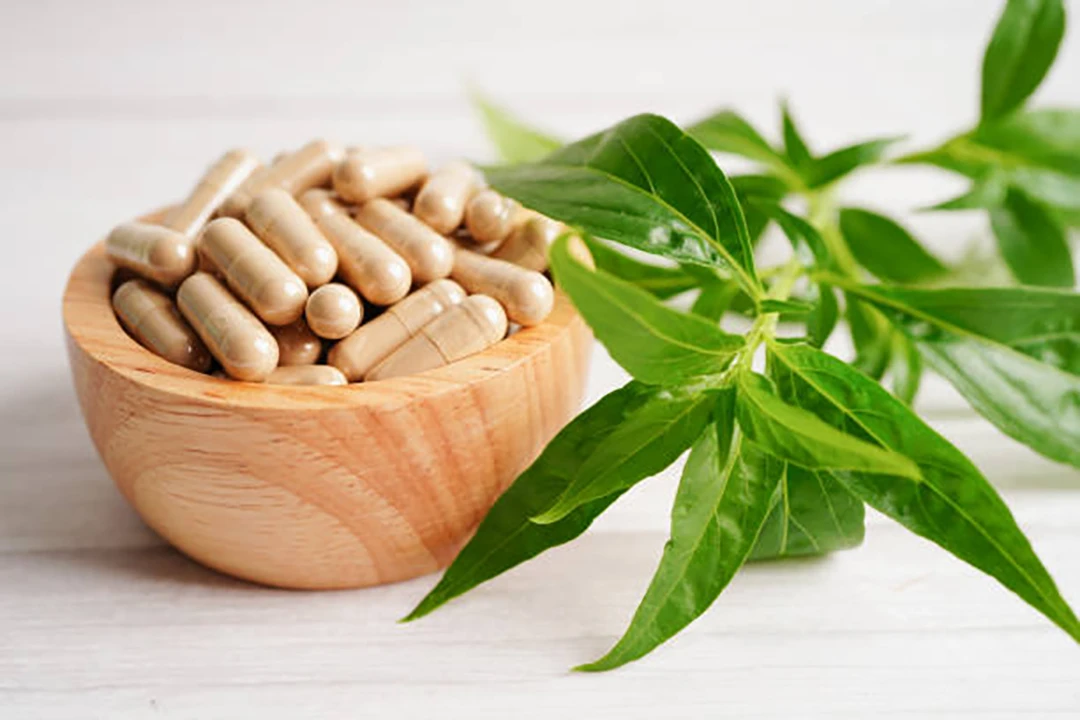
Andrographis paniculata, a herb widely used in traditional medicine, is gaining attention for its potential benefits in managing cold sores. Known for its strong antiviral and anti-inflammatory properties, andrographis may help reduce the severity and duration of cold sore outbreaks caused by the herpes simplex virus. The active compounds in andrographis, particularly andrographolide, are believed to inhibit viral replication and support the immune system, enhancing the body’s ability to fight off infections. Additionally, its anti-inflammatory effects can help alleviate the pain and swelling associated with cold sores. Andrographis can be consumed in the form of capsules, tablets, or teas, offering a natural remedy for those seeking relief from cold sores.
What Research Says?
- Based on research carried out by Phytomedicine, Andrographis paniculata extract significantly reduces the intensity of common cold symptoms such as sore throat, nasal secretion, and earache compared to a placebo.
- As per studies undertaken by PLoS One, It has been shown to improve overall symptoms of acute respiratory tract infections (ARTIs) and shorten the duration of symptoms like cough and sore throat.
- According to studies performed by Journal of Ethnopharmacology, Andrographis paniculata exhibits antiviral properties, which may be beneficial in treating virus-related conditions, including cold sores. The plant’s active components regulate virus entry, gene replication, and protein synthesis.
- According to investigations conducted by Phytomedicine, Regular intake of Andrographis paniculata extract has been shown to reduce the incidence of common colds, suggesting a potential preventive effect against viral infections.
How to Consume
To effectively use Andrographis paniculata for cold sores, you can incorporate it into your routine through various forms, such as capsules, tablets, or teas. Capsules and tablets are convenient options that provide a standardized dose of andrographis extract, ensuring consistent intake. It’s important to follow the dosage instructions on the product label or consult with a healthcare provider for personalized guidance. For those who prefer a more traditional approach, andrographis tea can be made by steeping dried andrographis leaves or powder in hot water for several minutes, then consuming it warm.
Potential Side Effects of Andrographis paniculata
Common side effects include gastrointestinal issues such as diarrhea, vomiting, and loss of appetite, as well as headaches, fatigue, and a rash. Some individuals may experience a bitter or metallic taste in the mouth. In rare cases, elevated liver enzymes have been reported, which typically return to normal after discontinuation of the supplement.
Who Should Avoid Andrographis paniculata
Certain individuals should avoid using Andrographis paniculata due to potential health risks. Pregnant women should steer clear of this herb, as it may increase the risk of miscarriage. Breastfeeding women are also advised to avoid it, as there is insufficient information on its safety for infants. People with autoimmune diseases, such as multiple sclerosis or lupus, should avoid andrographis, as it may stimulate the immune system and exacerbate these conditions. Those with known allergies to andrographis should avoid its use to prevent allergic reactions.
Interaction with Medications
Andrographis paniculata can interact with various medications, potentially affecting their efficacy. It may interact with anticoagulants, such as warfarin, increasing the risk of bleeding. Andrographis can also affect the metabolism of drugs processed by the liver’s cytochrome P450 enzymes, potentially altering the pharmacokinetics of medications like naproxen, ibuprofen, and other anti-inflammatory drugs. Additionally, it may interact with immunosuppressive medications, potentially reducing their effectiveness. People taking insulin or oral hypoglycemic medications should be cautious, as andrographis may enhance their effects, leading to low blood sugar levels.
FAQs
- Can I use multiple herbs together for cold sores?
Yes, you can combine different herbs to enhance their effects on cold sores. For example, you might use honey as a base and apply tea tree oil or turmeric on top. However, be cautious of potential interactions and skin sensitivities when mixing herbs. It’s often recommended to patch-test any combination on a small area of skin first.
- How quickly do herbal remedies work on cold sores?
The effectiveness of herbal remedies can vary from person to person. Some individuals may notice a reduction in pain and size within a few days, while others might take longer to see results. Consistent application is key to maximizing the benefits.
- Are there any herbs that should not be used during an active cold sore outbreak?
While most herbs are safe, those that can cause skin irritation, such as undiluted tea tree oil or strong concentrations of ginger, should be used with caution. Always dilute essential oils with a carrier oil and monitor your skin’s reaction to any topical treatment.
- Can herbal remedies prevent cold sores from occurring?
Certain herbs, such as Echinacea or Andrographis paniculata, may help boost your immune system and potentially reduce the frequency of cold sore outbreaks. However, they may not prevent outbreaks entirely, especially if you are exposed to common triggers like stress or sun exposure.
- How should I store herbal remedies to maintain their effectiveness?
Herbal remedies should be stored in a cool, dark place, away from direct sunlight and moisture. Essential oils, in particular, should be kept in dark glass bottles to preserve their potency. Check the expiration dates and quality of your herbs regularly.
- Are there any dietary changes that can complement herbal treatments for cold sores?
Yes, maintaining a diet rich in immune-boosting foods, such as fruits, vegetables, and foods high in lysine (like dairy products and fish), can complement herbal treatments. Avoiding arginine-rich foods (like nuts and chocolate) may also help, as arginine can trigger cold sores in some people.
- Can children use herbal remedies for cold sores?
Some herbal remedies are safe for children, but others, like essential oils, may need to be diluted more heavily or avoided entirely. Always consult with a pediatrician before using any herbal treatments on children, particularly those under 12 years old.
- Can I use herbal remedies on cold sores inside my mouth?
Herbal remedies like honey or licorice may be safe for internal use, but essential oils should generally not be applied inside the mouth due to their potency and potential toxicity if ingested. Always consult a healthcare provider for safe treatment options for oral cold sores.
- Are there any lifestyle changes that can enhance the effectiveness of herbal remedies for cold sores?
Yes, managing stress, getting adequate sleep, and protecting your lips from sun exposure can help enhance the effectiveness of herbal remedies. Regularly moisturizing your lips and avoiding triggers like extreme temperatures can also support faster healing and reduce recurrence.
- Are there any contraindications for using herbal remedies while pregnant or breastfeeding?
Yes, certain herbs, such as licorice and andrographis, should be avoided during pregnancy and breastfeeding due to potential risks to the baby. It’s essential to consult with a healthcare provider before using any herbal remedies during these times.


